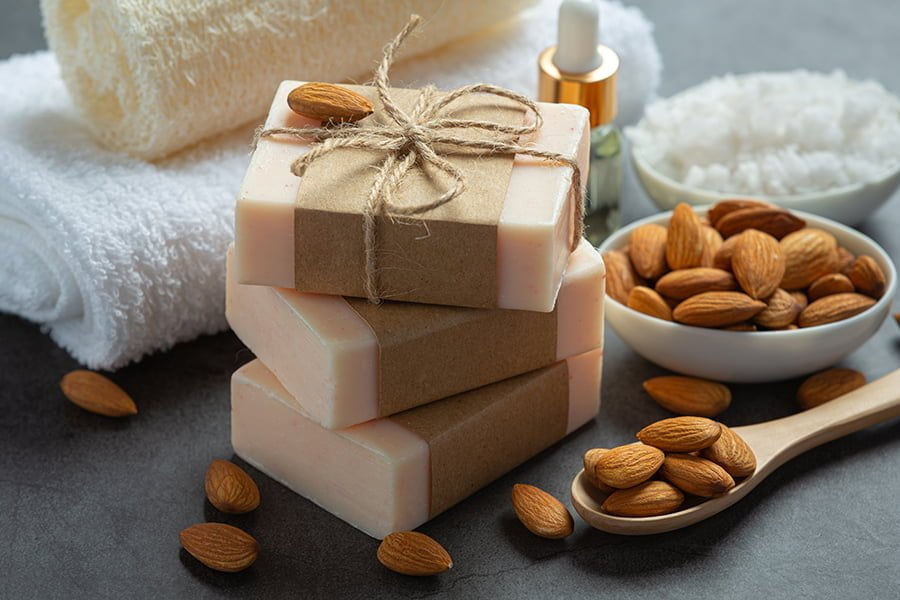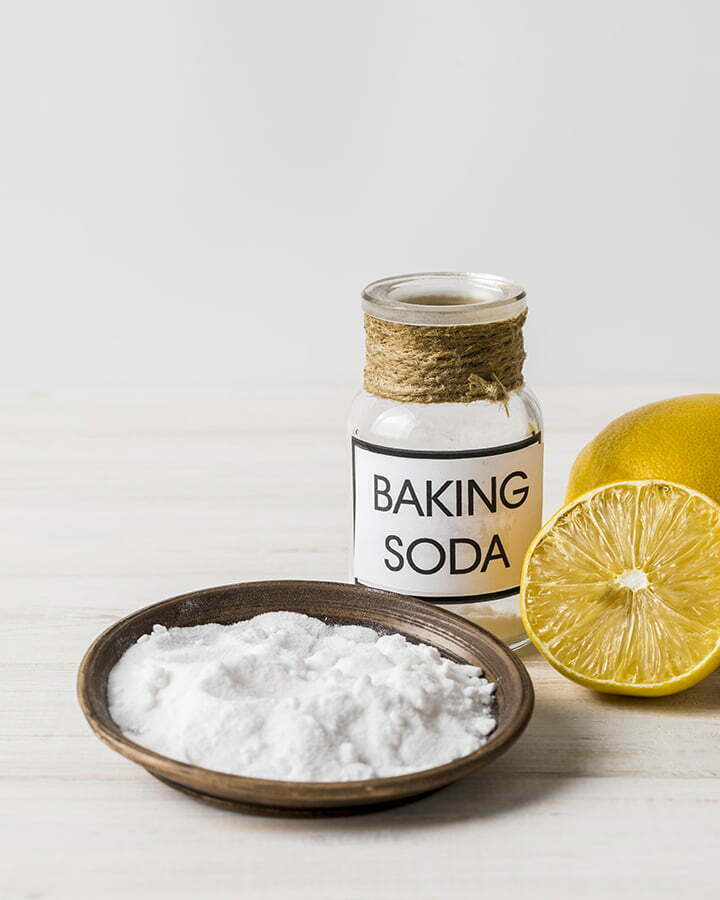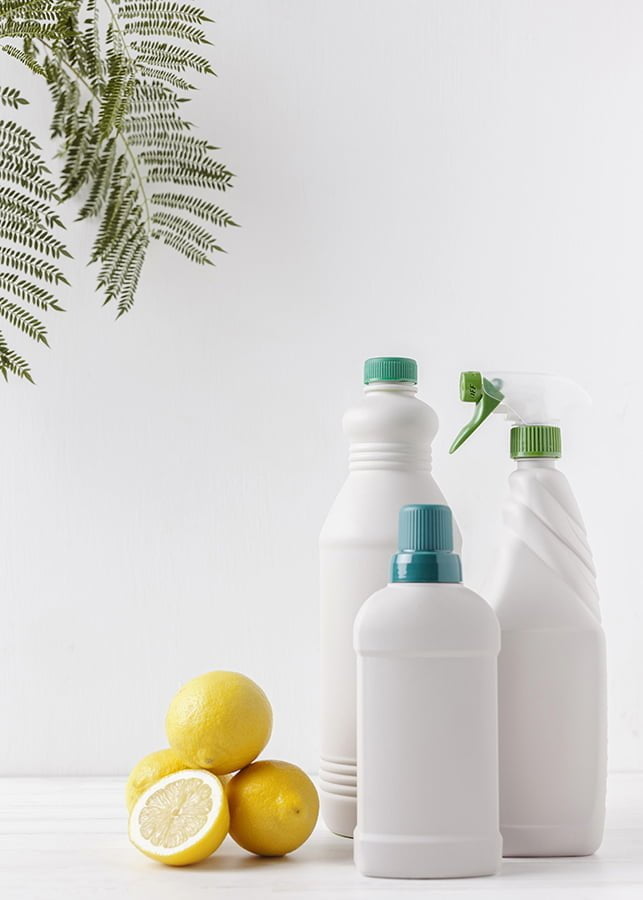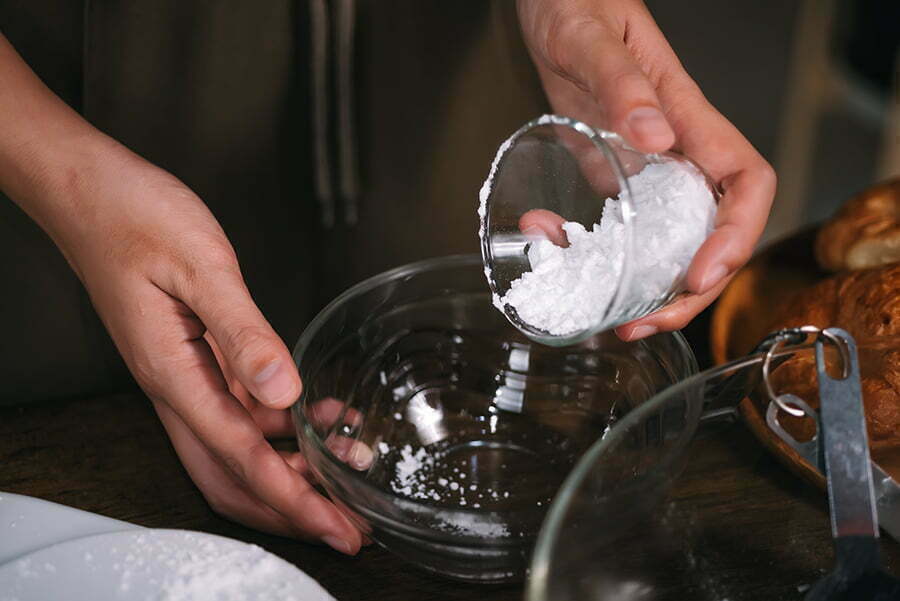Last updated on
Looking for a way to save money on laundry detergent without sacrificing cleanliness? Here are alternative options with their advantages and disadvantages.
Laundry day can be a chore; finding a suitable detergent can add to the frustration. With so many options on the market, it’s hard to know which is best for your clothes and budget.
But have you ever considered using alternative laundry detergents? Not only are they often more affordable, but they can also be better for the environment and your health. In this article, we’ll explore six laundry detergent alternatives you may not have considered before.
From natural ingredients to DIY solutions, we’ll weigh their advantages and disadvantages so you can find an option that works best for you. So if you’re ready to ditch traditional laundry detergents and try something new, keep reading!
Soap Nuts

Soap nuts are a natural and eco-friendly alternative to traditional laundry detergents. They come from the dried fruit of the Sapindus mukorossi tree, which is native to India and Nepal.
Soap nuts contain saponin, a natural surfactant that helps remove dirt and stains from clothes.
Advantages of using soap nuts include their affordability, as they can be reused multiple times before needing to be replaced. They are also hypoallergenic and gentle on sensitive skin, making them an ideal choice for those with allergies or skin sensitivities.
However, there are some disadvantages to using soap nuts as well. One potential issue is that they may not work as effectively on heavily soiled clothing or tough stains compared to traditional detergents.
Some users have reported a lack of fragrance when using soap nuts in their laundry.
If you’re looking for an affordable and eco-friendly option for your laundry routine while still maintaining clean clothes without harsh chemicals – then giving soapnuts a try might just be worth it!
Baking Soda

Baking soda is a versatile household item that can be used for various purposes, including as a laundry detergent alternative. It works by neutralizing odors and removing stains from clothes.
To use baking soda as a laundry detergent, add half to one cup of it to the washing machine along with your regular detergent.
Advantages:
- Baking soda is an affordable option compared to commercial detergents.
- It’s gentle on fabrics and doesn’t cause any damage or discoloration.
- Baking soda can also soften hard water, making it easier for the soap to lather up.
Disadvantages:
- While baking soda can remove mild stains and odors effectively, it may not work well on tough stains like grease or oil.
- Using too much baking soda in your wash cycle may leave residue on clothes or even damage them over time.
Overall, using baking soda as a laundry detergent alternative is an excellent choice if you’re looking for an affordable yet effective solution that’s gentle on fabrics. However, keep in mind its limitations when dealing with stubborn stains or delicate clothing items.
Vinegar

Vinegar is a popular laundry detergent alternative that has been used for centuries. It is an all-natural and inexpensive option that can effectively clean clothes without the use of harsh chemicals.
Vinegar works by breaking down dirt, grime, and stains while also removing odors from fabrics.
Advantages:
- Vinegar is an eco-friendly option as it does not contain any harmful chemicals.
- It can be used in both high-efficiency and traditional washing machines.
- Vinegar helps to soften fabrics naturally without the need for fabric softeners.
- It can also help to remove static cling from clothes.
Disadvantages:
- While vinegar may work well on most types of clothing, it may not be suitable for delicate or silk fabrics as it could cause damage or discoloration over time.
- The strong smell of vinegar may linger on clothes after washing which some people find unpleasant.
Overall, using vinegar as a laundry detergent alternative offers many benefits but should be used with caution when dealing with delicate materials.
Lemon Juice

Lemon juice is a natural alternative to laundry detergent that has been used for centuries. It contains citric acid, which helps to break down stains and brighten whites.
To use lemon juice as a laundry detergent alternative, simply add 1/2 cup of freshly squeezed lemon juice to your washing machine during the rinse cycle.
Advantages:
- Lemon juice is an eco-friendly option that does not contain harsh chemicals.
- It can help remove tough stains and odors from clothes.
- The acidic properties of lemon can also act as a fabric softener.
Disadvantages:
- Lemon juice may not be effective on heavily soiled or greasy clothing.
- Overuse of lemon juice may cause damage or discoloration to certain fabrics such as silk or wool.
- The cost of purchasing enough lemons for regular use could become expensive over time.
Borax
Borax is a naturally occurring mineral that has been used for cleaning purposes for over 100 years. It can be found in the laundry aisle of most grocery stores and is often marketed as a laundry booster or stain remover.
Borax works by softening hard water, which allows detergent to work more effectively.
Advantages:
- Inexpensive compared to traditional detergents
- Can be used as a pre-treatment for stains
- Helps remove odors from clothes
Disadvantages:
- Not suitable for all fabrics, especially delicate ones
- May cause skin irritation if not handled properly
- Should not be ingested or inhaled
Borax can be an effective alternative to traditional laundry detergents but should only be used with caution and following proper safety guidelines.
Washing Soda

Washing soda, also known as sodium carbonate, is a popular laundry detergent alternative that has been used for decades. It is an alkaline substance that helps to remove dirt and stains from clothes.
One of the advantages of washing soda is its affordability; it costs less than most commercial detergents and can be found in most grocery stores.
However, there are some disadvantages to using washing soda as a laundry detergent alternative. For one thing, it can be harsh on fabrics if not used properly or in the right amount.
It may not work well with hard water since it requires soft water to dissolve completely.
To use washing soda as a laundry detergent alternative, add 1/2 cup of the powder into your washer drum along with your clothes before starting the wash cycle.
Be sure to follow any additional instructions from your machine’s manufacturer or consult a professional cleaner for best results.
Recap




